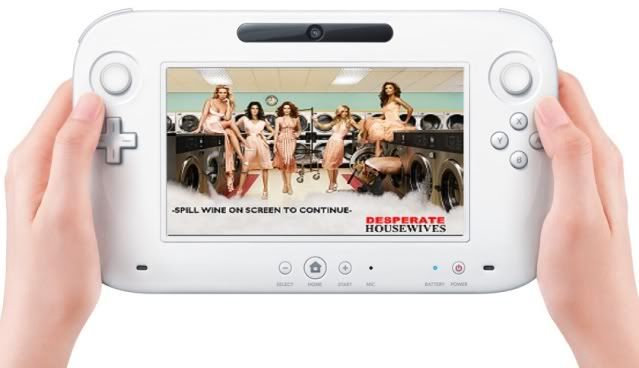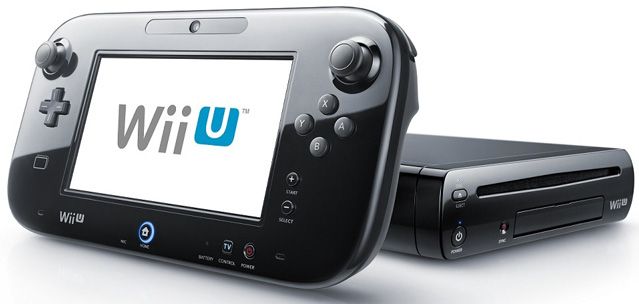This post has not been edited by the GamesBeat staff. Opinions by GamesBeat community writers do not necessarily reflect those of the staff.

This "blue ocean" that Nintendo is so fond of can't be fished clean. The name exists for a reason: It's that untapped market with a seemingly limitless potential for financial growth. The issue with the ocean, though, is that it's big … really big. More importantly, fish, much like the blue ocean's consumers, are fleeting little creatures; they seldom stay in a single spot for too long.
It's not farfetched to say that the Wii U aims to mimic the success of its predecessor, right down to the last middle-aged tuna. Even the marketing campaign shares a close resemblance, making this new console less about you the gamer and more about we the family.
My concern, though, is that the very nature of the demographic that made the Wii such a success seems to escape Nintendo's understanding. This is the group of consumers that saw gaming's seminal years as a mere fad and left it to rot when the trend lost steam. This same group similarly regarded the Pet Rock, Tickle Me Elmo, and the RoboSapien … never to look back.
These folks aren't dedicated gamers and are likewise unaware of the customs, commonalities, and differences that we know of between games and gaming hardware. And, as Nintendo again casts its line out to them, the bait being used doesn't seem to consider these variables.

"Wii would like to play." "Play what?" "Play U." "You mean Mii?" "FFFFUUUU!!!!"
They came, they saw, they moved on
Whether or not Nintendo fans want to believe it, the fact remains that the Wii was a runaway hit due to a short burst of popularity among casual and non-gamers. That, coupled with the fact that Nintendo sometimes sells its hardware above the manufacturing cost, and they certainly had a fleeting Midas touch, turning everything into gold.
While it would be foolish to assume Nintendo needs to nail that same audience to experience similar success, that seems to be what they're attempting, nonetheless. But is that audience going to bite? To get a better idea of what the answer to that might be, I asked around.
I went to shopping centers close to game retailers and asked 50 casual-gaming Wii owners if they knew/cared at all about the Wii U; their ages ranged between 35 to 58. Unsurprisingly, only eight of them knew what it was, and even fewer cared to learn more about it; explaining it to some individuals beckoned expressions of blatant disinterest.
One women I spoke with asked me, "Why would they think I'd buy it again? I already own a Wii." This is a reaction I was expecting; she, along with others, didn't understand the distinction between the two consoles.
Such disinterest and confusion is important to note, because this directly affects the outcome of sales among the casual crowd. If mom, dad, grandma, or grandpa don't know what the heck it is or even care to find out, they obviously won't take the next, most important step — buying it.
It also needs to be said that, while the above case of confusion between brands will likely be common among non-gamers, it's not entirely due to sheer ignorance. Nintendo's marketing has been incredibly blurry between the Wii U and its predecessor.

Advertisements for both systems.
Same as the old boss
When rumors and leaked concept designs of the Wii U first circulated in 2011, my original thought was, "Since they gained some notoriety with the group-oriented experience of the Wii, they're probably going to focus on the individual now." In accordance with that, I also suspected they would name it "Yuu" or something similar. I wasn't exactly correct.
The Wii U has been presented in what is arguably the direct shadow of the Wii. Its advertising predominantly emphasizes fun, party like entertainment value, albeit with some slight separation (three others against the one with the special controller). Even the Wii U logo, itself, is only slightly different from its Wii precursor.
I've heard some concerns from other gamers regarding the possibility of the Wii U being confused for a mere peripheral add-on. I, too, had this worry, which was only amplified when a few of the casual and non-gamers I spoke with actively mistook the new system for a simple controller addition.
And why is such misinformation the case? Because the Wii U's initial image is that big ol' controller they hope will drive most of the intrigue. Sure, that works for us hobbyists who have studied the hardware and know what we're getting before it arrives, but relatively unsavvy consumers who "shop by the box" are used to seeing a big DVD player-like machine on the front of console packaging.
These people aren't educated in the trends and changes of this industry and medium, so they'll likely make assumptions of their own if they notice something out of step.

What an age: consoles resorting to photobombs.
A poor catch doesn't mean a torn net
Before some of you unsheathe your cutlery, I need to make one important thing clear: This isn't a commentary on the quality of the Wii U … at all. The system is only a few days old. Games make the console, and plenty of time remains for Nintendo to provide some great titles.
I won't lie: I wasn't a large fan of the Wii (I abhor motion controls), but a part of me might consider picking up its successor, should it provide a variety of good software.
I'm already a gamer, though. People like me buy these things; it's what we do. And we were but a small reason for the Wii's notable spike in sales. It's unclear as to whether or not Nintendo will be able to hook the other significantly large chunk of that equation. From what I've seen, I have my doubts.
It shouldn't be too surprising if the Wii U doesn't retain the top spot in the coming generation.
